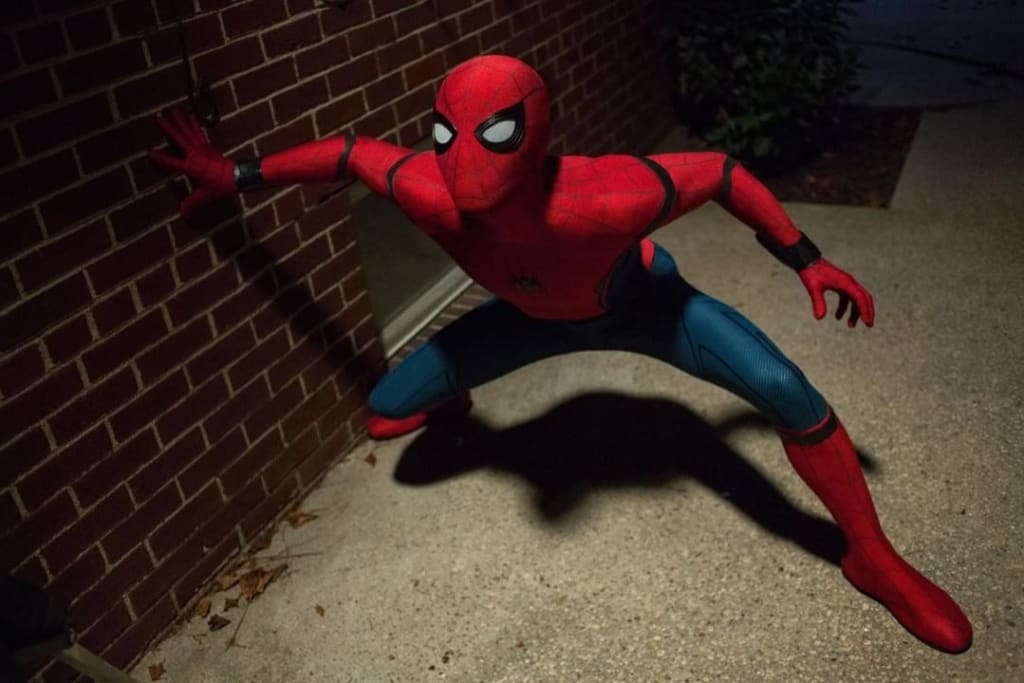Here's How Kevin Feige Convinced Sony To Lend Spider-Man To Marvel Studios
Much has already been written about the landmark deal between Marvel Studios and Sony Pictures for shared live-action rights to Spider-Man, but a recent piece from The Hollywood Reporter has revealed plenty of new and intriguing information about the alliance.

Much has already been written about the landmark deal between Marvel Studios and Sony Pictures for shared live-action rights to Spider-Man, but a recent piece from The Hollywood Reporter has revealed plenty of new and intriguing information about the alliance. The feature explores what the partnership entails, and also discloses how Marvel’s head honcho, #KevinFeige, finally convinced Sony to share Spider-Man.
Here's How Kevin Feige Convinced Sony To Lend Spider-Man To The MCU

[Credit: Sony Pictures & Marvel Studios]
First, we need to cast our minds back to the time just after The Amazing Spider-Man 2 was released. The movie was pronounced a financial disappointment, throwing the studio's plans into jeopardy. Even so, Sony’s then co-chairperson #AmyPascal wasn’t fully convinced by Marvel’s suggestion that they should integrate Spider-Man into the MCU.
How did Kevin Feige finally pique her interest? It's simple. Feige is a savvy businessman. The Marvel Studios president spelled out exactly how the deal would be of great benefit to both studios:
"It really came down to me telling Amy in her office that I think the best thing for this character is...[to] have Sony pay for the movie, distribute the movie, market the movie. Just let us make the movie and incorporate him into our universe."
Feige is probably simplifying things quite a bit, since its entirely possible that a veritable army of lawyers and executives were on hand to work out the finer legal details, but it all seems pretty straightforward, doesn't it? Aside from those recent contradictory statements about Venom’s part in the MCU, the Spider-Man deal appears to have progressed surprisingly amicably. Indeed, #Sony essentially get the chance to both reboot their Spider-Man franchise and ride off the success of Marvel’s intensely profitable crop of films with little to no extra hassle.
Similarly, though they could easily have continued without him, Marvel's tactics have paid off and they now has access to one of the most popular superheroes ever. In short, the Marvel/Sony arrangement is a mutually beneficial deal whereby both parties get to pocket considerable profits; no wonder Amy Pascal eventually said yes! But wait, why was she not sold in the first place?
Who Gets Creative Control Over The Wall-Crawler?
Pascal’s initial apprehension about the #Marvel/Sony deal ties into a particularly thorny issue: If two studios are both working on Spider-Man, which of them gets to dictate what he says or does in each of his cinematic appearances? In this case, Feige’s repeated insistence that Marvel are “making the movie” for Sony is a very encouraging thing to hear. Along with producer Tom Rothman’s prior assertions, Marvel Studios seems to have had equal if not greater creative influence on Spider-Man: Homecoming, and they will presumably do so throughout the rest of the new trilogy.
In light of Sony's track record with the character, some fans may find Pascal’s concern about losing control of the “studio's most important asset” to be a somewhat absurd one. Yet overall it is pretty understandable; after all, #SpiderMan is recognized as the one of the most profitable superhero properties in his own right, with several of his installments each grossing over $1 billion at the box office.
Whilst Sony definitely had their fair share of problems with The Amazing Spider-Man 2, Pascal and co. clearly initially felt that they could potentially correct the franchise’s course alone. Naturally, we’re glad they didn’t go down this road, especially after what we learned about the - ahem, strange - plot for The Amazing Spider-Man 3. Plus we fans did get #TomHolland’s suitably amazing iteration in the exchange, so we’re definitely not complaining.
All in all, these details from behind-the-scenes of Spider-Man: Homecoming are pretty heartening to hear. Indeed, Marvel Studios has an excellent record with their own superhero properties, so there’s a lot of promise in the re-launched Spider-Man franchise, even if it has a lot of pressure on it. You can bet that the upcoming Kraven the Hunter, Mysterio, and Venom solo movies - along with the rumored Sinister Six film - will be shaped by how audiences respond to #SpiderManHomecoming. So far though, it seems that we fans, as well as Sony and Marvel Studios, have little to fear since the initial buzz for the film is very positive and it's tracking for an opening weekend average of $100 million.
Whallopin’ websnappers! That July 7th, 2017 release date can’t come soon enough.
[Source: The Hollywood Reporter]
About the Creator
Max Farrow
A fanatical film-watcher, hill-walker, aspiring author, freelance writer and biscuit connoisseur.
These articles first appeared on Movie Pilot between Jan 2016 and Dec 2017. Follow me on Twitter @Farrow91






Comments
There are no comments for this story
Be the first to respond and start the conversation.